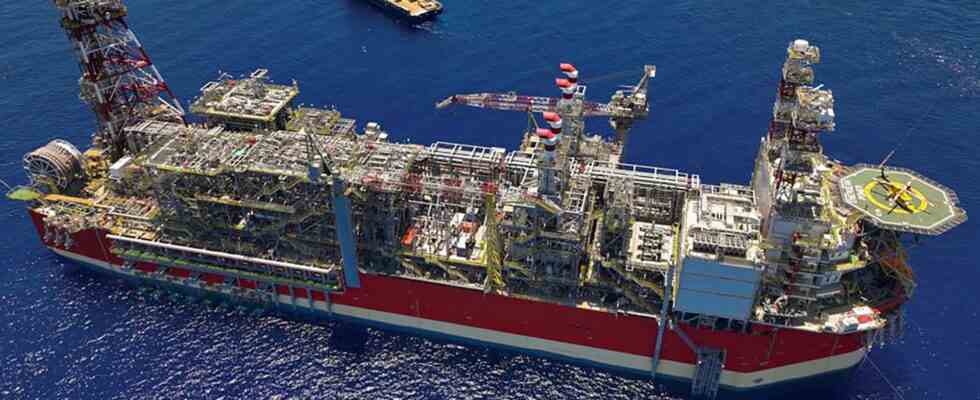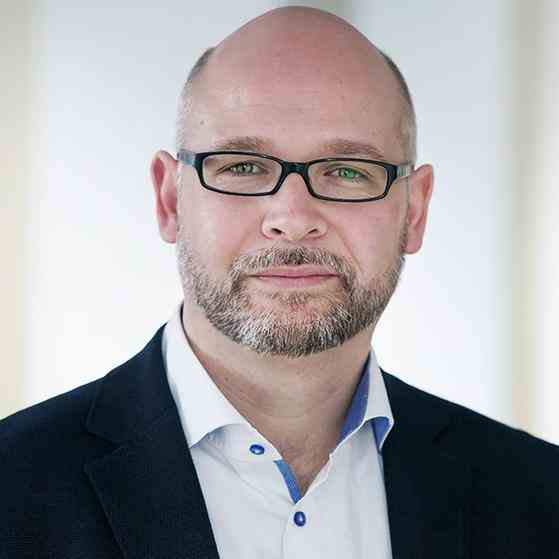Status: 10/11/2022 3:43 p.m
Officially they are still at war, but now Israel and Lebanon have settled their dispute over gas production in the Mediterranean. Israel’s Prime Minister Lapid calls the agreement historic.
Israel’s head of government is trying to portray the agreement as a great success: On November 1, the Israelis will elect a new parliament and the incumbent liberal Prime Minister Yair Lapid is behind opposition leader and ex-Prime Minister Benjamin Netanyahu in polls. He had stated that the agreement was at the expense of Israel’s security and that the Lapid government was giving in to threats from the Lebanese Hezbollah militia.
The opposite is the case, says Prime Minister Lapid. “Security in the north will be strengthened and gas can be extracted from the Karish field. That brings money into the state coffers and ensures our energy supply. This agreement strengthens Israel’s security and its economy.”
His government is not against the exploitation of a Lebanese gas field, “because we will of course get our share. Such a gas field will reduce Lebanon’s dependence on Iran, hold back Hezbollah and promote stability in the region.”
Assumes that the agreement will strengthen his country’s security and economy: Israeli Prime Minister Lapid.
Image: dpa
Agreement reached with US mediation
Lapid calls the deal historic. Israel and Lebanon negotiated for years with US mediation. Officially, both countries are still at war and they do not maintain diplomatic relations.
According to the agreement, Lebanon is now giving up its claims to the Karish natural gas field, which Israel has claimed exclusively from the start, according to Israeli sources. Funding should start there in a few weeks. In return, Lebanon is allowed to develop and later exploit a deposit, a small part of which lies in Israeli waters. The income from this should then also go proportionately to Israel – this is how the government in Jerusalem justifies its approval.
In Lebanon, too, the first signs of agreement are positive. Important demands of the country have been met, according to government circles in Lebanon’s capital Beirut.
“An agreement that satisfies both sides”
Lebanese chief negotiator and deputy speaker of the parliament, Elias Bu Saab, said: “The effort was that both sides got the guarantees they needed and got what they wanted – in a fair deal. I can say we reached an agreement, both of us sides satisfied and everyone knows how difficult it is to find such a solution.”
The complicated domestic political situation in Lebanon made the negotiations difficult. There is still no new government since the parliamentary elections in May. The various religious camps dominate politics – all important offices are divided among the religious groups.
The Lebanese negotiator Saab (left, here with Prime Minister Mikati) speaks of an agreement that satisfies both sides.
Image: EPA
How is Hezbollah responding?
Hezbollah, a powerful actor in Lebanon, had previously made massive threats if Israel began to extract gas without consultation. Hezbollah had already sent drones over the gas field several times, which Israel shot down. According to observers, the current compromise is primarily about de-escalation.
Hezbollah wants to comment in the evening, the case is now with the President. But actually all sides in Lebanon have an interest in an agreement, including Hezbollah, says Michael Bauer from the Konrad Adenauer Foundation in Beirut: “It has already been heard informally that Hezbollah agrees in principle to this agreement especially given that Hezbollah has been doing some saber-rattling here.” The militia will claim that Israel made concessions as a result of their pressure.
“At the same time, however, one must also bear in mind that this agreement poses a certain risk to Hezbollah. Hezbollah naturally rejects the idea of normalizing relations with Israel,” says Bauer.
Lebanon needs economic prospects
Lebanon urgently needs an economic perspective: The country is in a severe economic crisis, the currency has lost more than 90 percent of its value. That is why many Lebanese are pinning their hopes on the gas reserves in the Mediterranean.
“The people in Lebanon will benefit the most,” said Lebanese economics expert Laurie Haytayan a few weeks ago, “because we urgently need the gas for our economy. And to negotiate with the International Monetary Fund and the international community and thus improve the economic situation be able”.
Agreement between Israel and Lebanon in the gas field dispute
Anna Osius, ARD Cairo/Tim Aßmann, ARD Tel Aviv, October 11, 2022 2:56 p.m


